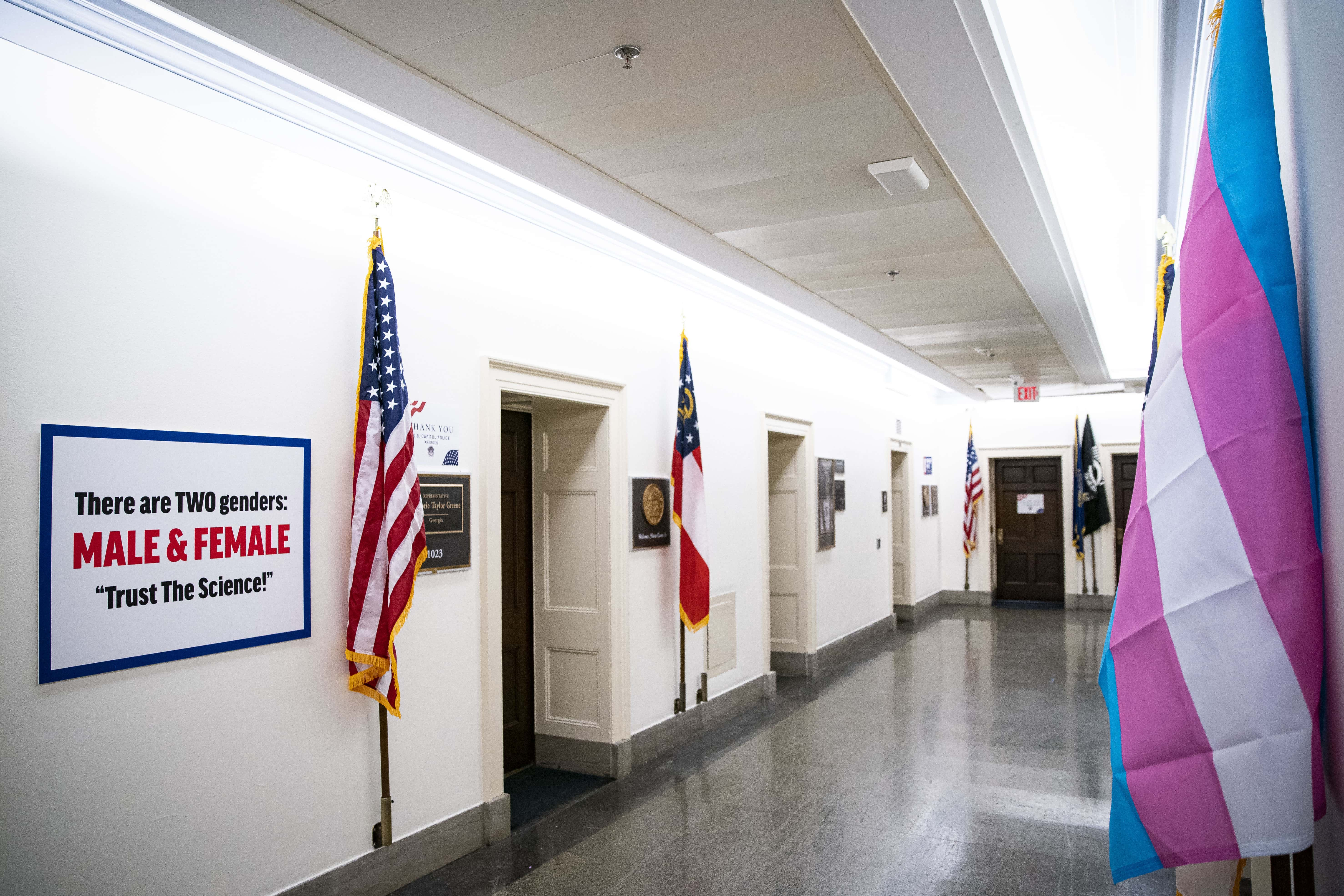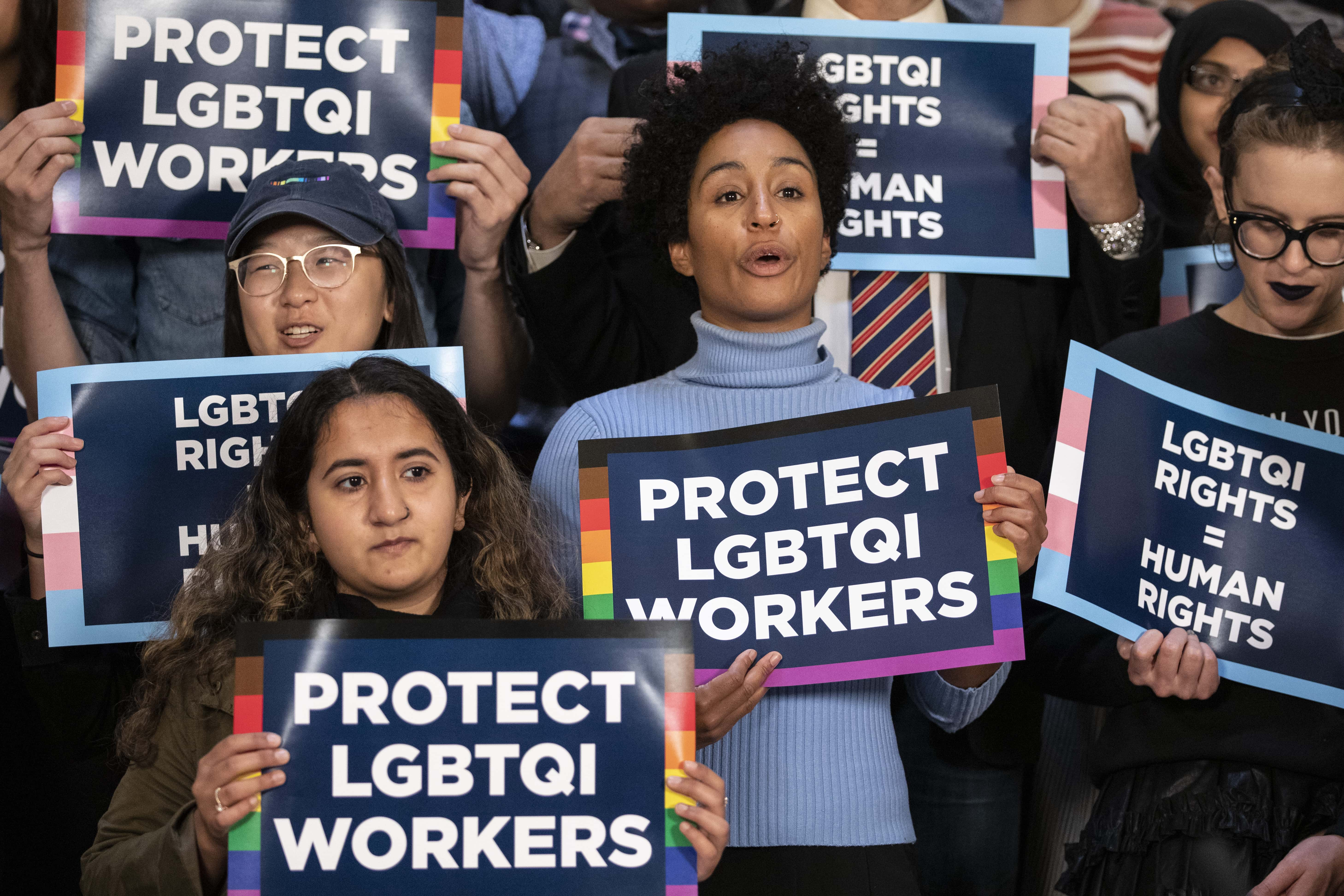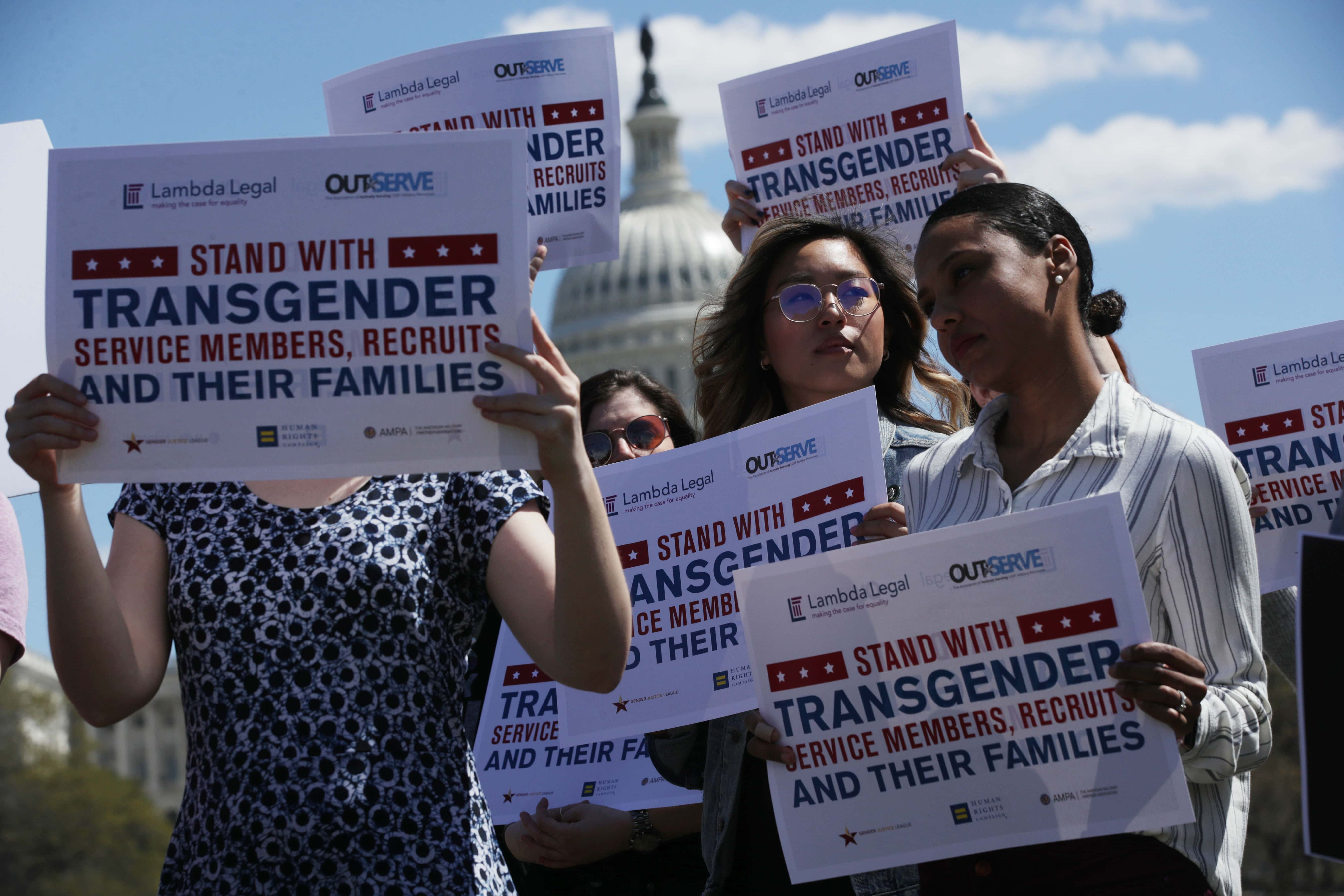Why is GOP opposing Equality Act? Lack of 'religious liberty protections', privacy of women concern Republicans

On Febrary 25, the House passed the Equality Act, bringing protections for the LGBTQ community one step closer to reality. The historic act was passed with a 224-206 majority, with three Republicans -- Reps. John Katko, Tom Reed, and Brian Fitzpatrick -- breaking ranks to vote for the bill. The act is an amendment to the Civil Rights Act, protecting people from discrimination based on sex and gender identity.
The contentious act was first passed in 2019 by the House, but killed by then Senate majority leader Mitch McConnell. In the days following up to the vote in the House, the act saw a huge battle between Democrats and Republicans, highlighted by the war of words between Reps. Marjorie Taylor Greene and Marie Newman.
The battle highlights what many see as key flaws with the bill, with Republicans saying it infringes upon religious rights. Despite that, the bill has now passed the House and will be debated in the Senate in the coming days. It is one of the many bills that Biden backed as a priority on the campaign trail.
RELATED ARTICLES

What is the Equality Act?
The act amends the 1964 Civil Rights Act to explicitly prevent discrimination based on sexual orientation and gender. According to the text of the bill, "Individuals who are LGBTQ, or are perceived to be LGBTQ, have been subjected to a history and pattern of persistent, widespread, and pervasive discrimination on the bases of sexual orientation and gender identity. An explicit and comprehensive national solution is needed to address such discrimination, including the full range of remedies available under the Civil Rights Act of 1964."
The act also expands the areas to which the protections apply. Under the Civil Rights Act, nondiscrimiation was limited to employment and housing, but will now apply to all federally funded programs and "public accomodations" such as retail stores and stadiums. The bill also broadens the definition of public accomodations to include online retailers, service providers and transportation providers, covering almost all modern-day businesses.
The act is vital as in recent years many businesses have refused to serve members of the LGBTQ community. For example, in 2018, the Supreme Court ruled in favour of Colarado baker Jack Philips, who refused to bake a cake for a same-sex wedding. Now, no retailers can refuse to serve someone based on their sexual orientation. This is primarily because the Equal Rights Act trumps the Religious Freedom Restoration Act (RFRA). The RFRA allows people to defend discrimination if it infringed upon their religious freedom, as the Colarado baker did.
Democrats are more hopeful of the bill passing this time round as it is based on a Supreme Court decision in 2020. In the case of Bostock v. Clayton County, the court ruled that the Civil Rights Act also prevents discriminiation on the basis of sex, and that lesbian, gay, and transgender Americans were protected. The text of the Civil Rights Act does not specifically mention the LGBTQ community or gender, just sex. That is why the Democrats have passed the bill, so as to codify protections for the LGBTQ community explicitly. Thereby reducing the dependence on courts, where decisions can be reversed.

Why are Democrats for the Bill?
Democrats have long been pushing for a bill to legalise protections for the LGBTQ community. Ian Thompson, senior legislative representative at the ACLU told NPR, "Just as [a business] would not be able to turn away somebody for any other prohibited reason in the law, they would not be able to do that for LGBTQ people either. And we think that's a really important principle to maintain."
It is important to note that many see the bill as a natural extension of the Civil Rights Act, which already makes discrimination on the basis of sex illegal. With the Equal Rights Act, nondiscrimination is extended to gender as well. Most importantly, the bill is national - meaning protection for the LGBTQ community will now extend to states that do not have laws already. According to Human Rights Campaign, "In 27 states, LGBTQ people remain at risk of facing discrimination due to the lack of statutory protections."
At a news confernece ahead of the vote, Senator Chuck Schumer said, "Their attacks on trans people in the transgender community are just mean. Mean. And show a complete lack of understanding, complete lack of empathy. They don't represent our views and they don't represent the views of a majority of Americans." For decades, members of the LGBTQ community have faced prosecution, humiliation and discrimination, so Democrats see the act as a vital step forward. But, there are some geniune concerns that they are yet to address.
Republican oppositon to the bill isn't just regular stonewalling - the act does not take into account the effect it will have on women's sports and religious freedom.

Why are Republicans Opposed to the Bill?
Republicans are opposed to the bill for two reasons, firstly that it removes protections provided by the RFRA. Conservatives have long hid behind the RFRA to avoid serving members of the LGBTQ community. The Heritage foundation, a conservative organsation said on its website, "The bill would pose an existential threat not only to religious organizations from churches to schools to charities, but also to secular institutions as well."
The opposition stems for the conservative belief that there are only two genders - male and female. Many beleive that other genders are not natural and therefore immoral, which is why there has been such a huge pushback against the LGBTQ community. That is a view shared by many people across the world, which is why the LGBTQ community has had such a hard time getting protections as compared to women or religious minorities.
The other issue conservatives argue is that the bill harms the privacy of women. On the House floor, Greene said "It will put trans rights above women's rights." Greene also believes that it would provide an unfair advantage to trans women, complaining it would be unfair for her daughter to play with "biological men". In a tweet, she said, "Your biological son does NOT belong in my daughters' bathrooms, locker rooms and sports teams" responding to Newman's statements in the House.
Greene's concerns are shared by many, who beleive the bills allows men to participate in women's sports if they identify as female. They are also concerened about the repecurssions of allowing trans people to share private spaces like restrooms and locker rooms with women. The Equality Act does not take these situations into account, nor have they been adequately addressed by Democrats. Republican Rep. Andy Biggs said, "The bill recklessly requires girl's and women's restrooms, lockers, gyms, or any place a female might seek privacy, to surrender that privacy to biological males. Women's sports are already being infiltrated."

What is Next?
The bill will now be debated in the Senate where it needs to pass with at least 60 votes. This could be problematic, as no Senate Republican has so far come out in support of the bill, In 2019, Susan Collins of Maine co-sponsored the bill, but has pulled out this time around as reportedly Democrats have not been willing to negotiate on the text of the bill. Rep. Mitt Romeny of Utah has also stated his opposition to the bill, stating the lack of "religious liberty protections".
Without any Republican votes, the bill will face the same fate it did in 2019 - failure to turn into law. Schumer has not yet stated when he will bring the bill up for debate. Speaking to the New York LGBT Network, he said, "As majority leader, I can't force everyone to vote for these things but I can bring it to the floor and we can spotlight who is with us and who is against us."










